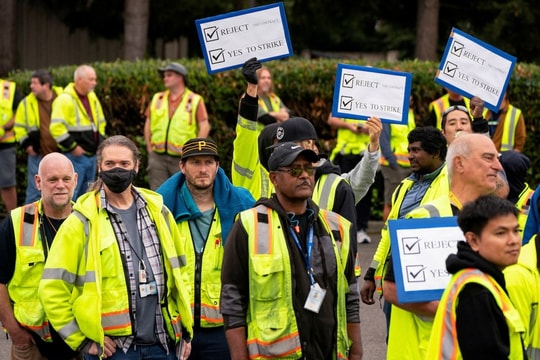Solutions to prevent illegal strikes
(Baonghean.vn) - Due to the complex nature and unpredictable consequences of illegal strikes and work stoppages, preventing and limiting strikes is a necessary task, and also an important task not only for trade unions but also for the entire political system.
According to the assignment of the Provincial Party Committee, the Working Group of the Provincial Labor Federation visited and studied and exchanged experiences with 6 southern provinces where strikes occurred among the most in the country to learn practical experience in preventing and limiting strikes, in order to develop the Project "Some solutions to prevent and limit illegal strikes in Nghe An province".
Strike situation in localities
From 2018 to June 2022, there were 151 strikes in Long An province with 103,557 workers participating. All strikes were not in accordance with legal procedures, mainly taking place in FDI enterprises (125 strikes), on average 30 strikes occur annually in Dong Nai province, of which 101/118 strikes occurred in enterprises with trade unions. 100% of strikes in the area were against the law.
As a large industrial center of the country, Ho Chi Minh City has 15 export processing zones, industrial parks, 10 industrial clusters, the labor relations situation has many potential complex risks, and labor disputes are frequent.dispute, strikeIllegal activities occur over a long period of time, with many workers participating.
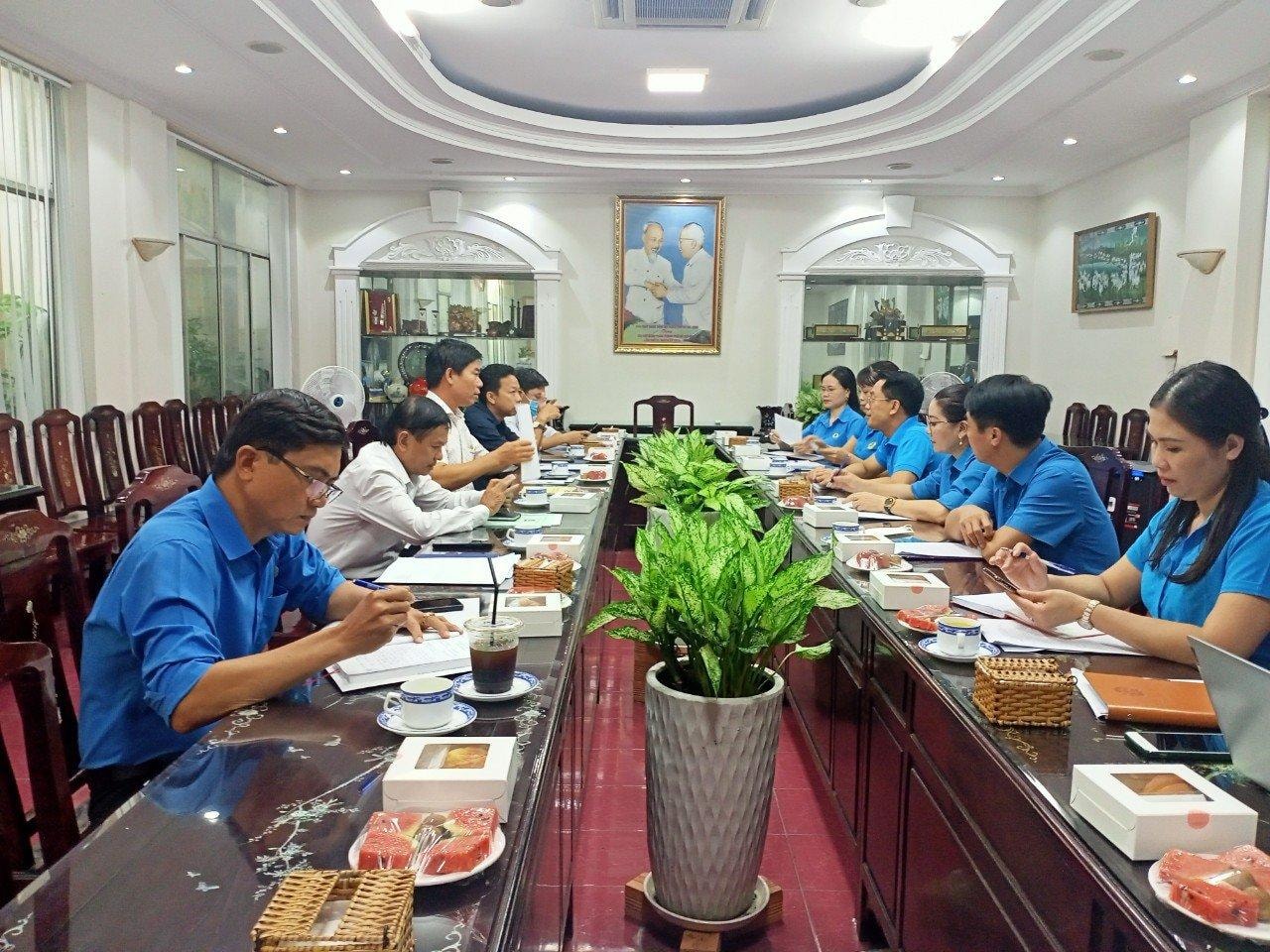 |
| Delegation of Nghe An Provincial Federation of Labor working in Ho Chi Minh City. Photo: DVCC |
The nature of strikes in the southern provinces is not complicated, mainly related to rights and interests such as wages, bonuses, slow implementation of government support packages, and untimely dissemination of legal policies. Some strikes originate from very simple causes such as the attitude of managers in communicating with workers, leading to frustration, attracting a large number of workers and laborers to participate in collective work stoppages...
In Nghe An, in the first 6 months of 2022 alone, there were 5 strikes. The causes of these strikes mainly stemmed from disputes related to the following contents: Requests to increase basic wages, pay bonuses, increase allowances, improve the quality of mid-shift meals, Covid-19 support regime, management attitude... Although businesses pay basic wages higher than the regional minimum wage, and overtime hours are high, workers' income is still low, not enough to cover their living expenses. Many businesses have not yet built a salary scale, and do not have regulations on salary and bonus payment. Some businesses organize overtime without consulting workers. Most businesses that go on strike are not interested in organizing the 2022 democratic conference, or organizing dialogues according to Articles 63 and 64 of the Labor Code. Workers complain that management is that foreign workers also insult and scold workers.
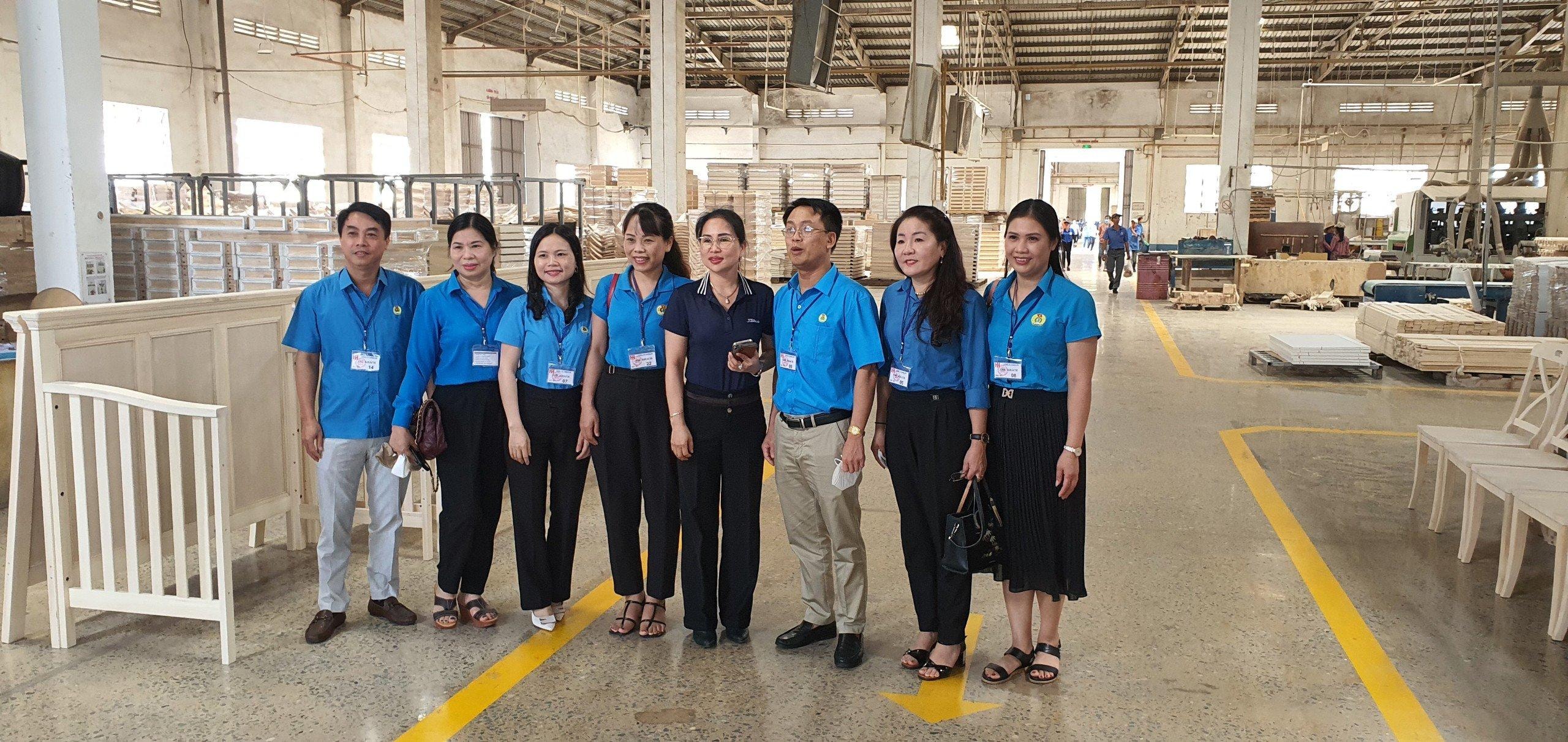 |
| Surveying the situation at Chien Vietnam Wood Products Manufacturing Company (Dong Nai). Photo: DVCC |
In addition to the above causes, in Nghe An, strikes mainly take place at enterprises belonging to corporations and at subsidiaries. Of the 5 enterprises that went on strike in the 3 provinces, 4 enterprises belong to corporations that have relationships with each other in implementing policies. When a company goes on strike, it will incite and entice other companies in the corporation to strike. 3strike(At Em-tech Vietnam Co., Ltd. and Nam Thuan Nghe An Joint Stock Company, Haivina Hong Linh Company (Ha Tinh) occurred at the same time, at the same time. There were 2 strikes at Vietglory Nghe An Company and Energy Ninh Binh Company that also occurred consecutively. Notably, the 11 demands of the workers were completely similar from the content to the level of demands. Not to mention, some workers who did not participate in the strike were threatened.
In reality, 100% of strikes occurring in the province are not in accordance with legal procedures and the nature of the strikes is somewhat more complicated, tense and difficult to resolve than in other localities.
Solutions to prevent and limit strikes
Due to the complexity and unpredictable consequences of illegal strikes and work stoppages, preventing and limiting strikes is a necessary task, and also an important task not only for trade unions but also for the entire political system - That is the affirmation of comrade Kieu Minh Sinh - Head of the Legal Policy Department, Dong Nai Provincial Labor Federation.
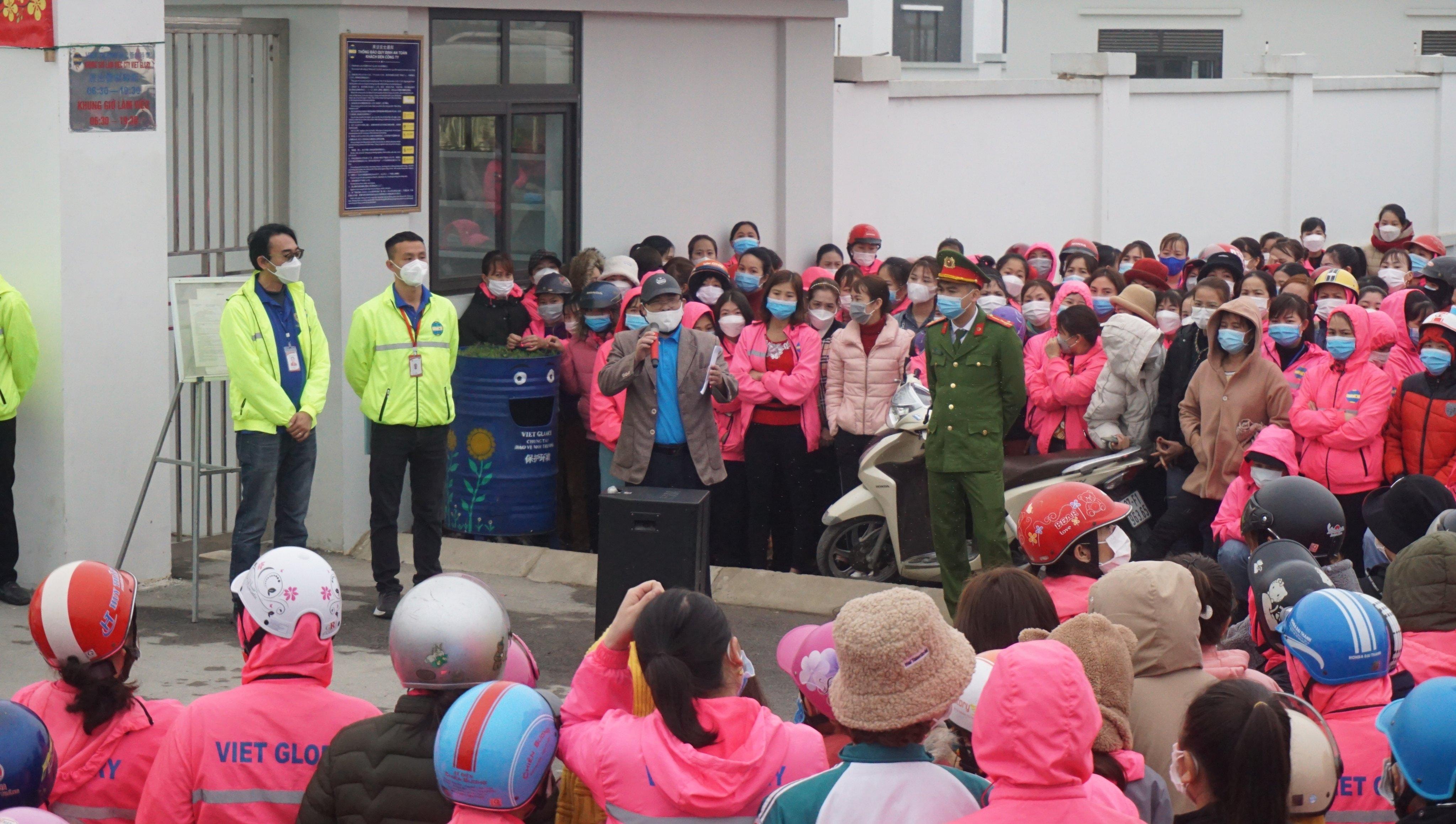 |
| Strike at VietGlory Company Limited in early 2022. Photo: Diep Thanh |
According to the experience shared by representatives of the Labor Federation of Dong Nai, Long An, and Ho Chi Minh City, to prevent and limit illegal strikes, we must start with the enterprise and the employees - the place where all conflicts leading to strikes originate. Once the enterprise complies with labor laws, considers employees as the greatest and most valuable asset to care for, ensure legitimate rights and interests, pay attention to building a harmonious relationship between the two sides, listen to the voices, aspirations, suggestions and recommendations of employees, at the same time dialogue, exchange, and democracy with employees, perfect and publicize regulations, salary scales, create conditions for grassroots unions to promote their role and responsibility in propaganda, understanding, and negotiation activities... then the relationship between employers and employees will be harmonious and strong.
On the part of workers, it is necessary to comply with the law, fulfill commitments in labor contracts, raise awareness, strengthen technical discipline, and especially choose ways to express and propose thoughts, aspirations, and recommendations in accordance with the law. At the same time, avoid being lured, incited, and politicized into work stoppages by reactionary forces that sabotage the country's development.
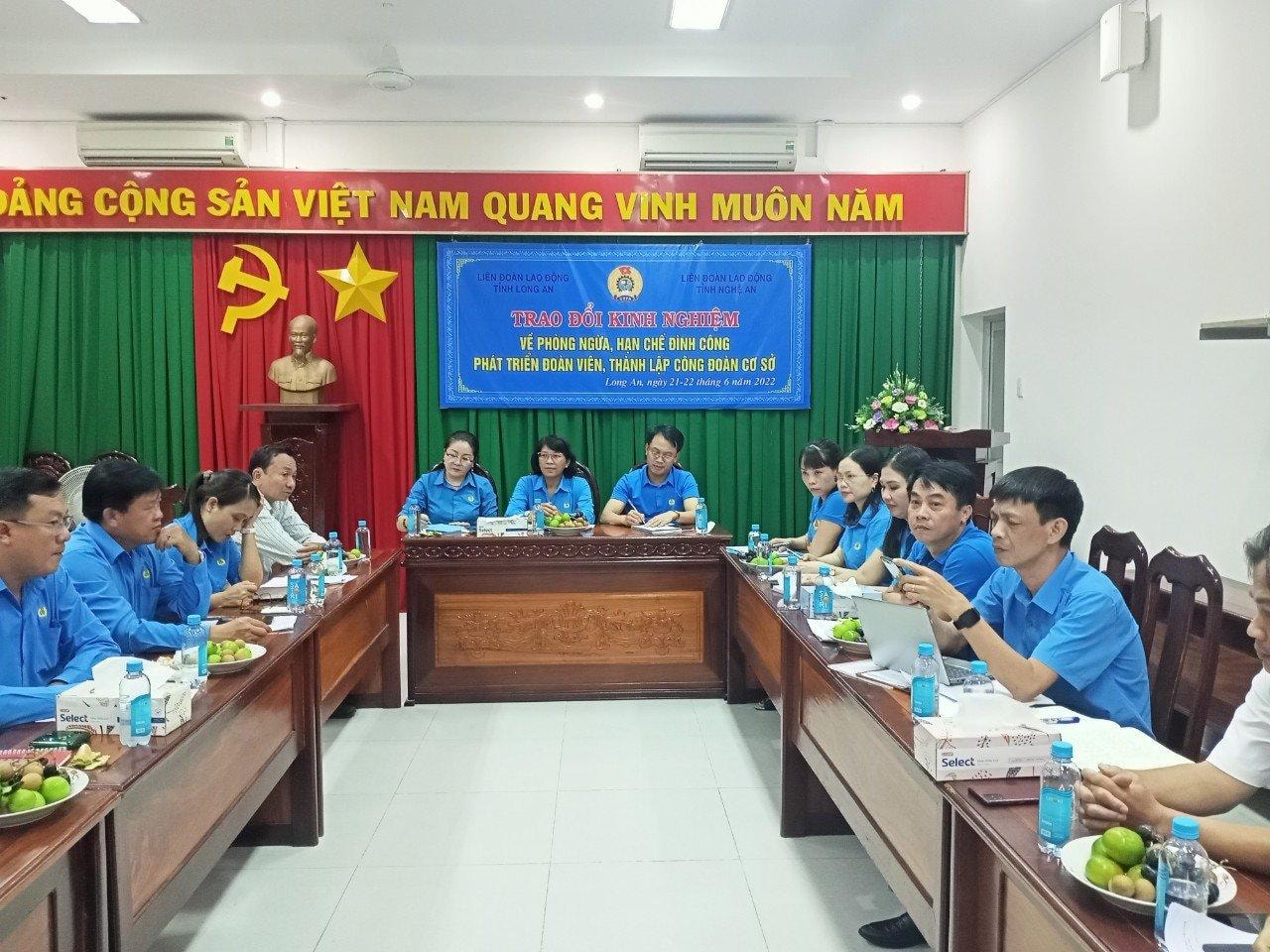 |
| Delegation of Nghe An Provincial Federation of Labor working in Long An. Photo: DVCC |
Regarding the role of trade unions, in addition to disseminating labor laws, labor discipline, and industrial style to union members and workers, they also need to promptly grasp the thoughts, aspirations, and urgent recommendations of workers through many channels and forms. In particular, in Dong Nai, a core team of 167 workers has been trained, and information technology has been applied in information work. From there, it is possible to promptly detect and grasp the developments of strikes and work stoppages that will occur.
Regarding experience in coordination and direction, comrade Ho Thanh Hong - Vice Chairman of the Dong Nai Provincial Labor Federation shared: “The leadership role of the Party Committee is decisive in directing forces, especially security forces, to coordinate in preventing and resolving strikes. In Dong Nai province, a provincial steering group has been established with a separate hotline to update news 24/7. From the attention of the Provincial Party Committee, the synchronous coordination of the police forces, the government, the trade union and other organizations, information is regularly updated, resolved promptly, not allowing the phenomenon of strikes and work stoppages to spread, prolong and cause insecurity and disorder in the area”.
Share experiences instrike resolution, collective work stoppage, Ms. Bui Thi Ngoc Trang - Chairwoman of the Trade Union of Industrial Parks of Long An province said: "As soon as we get the information, we must stay calm, coordinate with the police force to determine the cause of the strike, the leader, and then classify the group of workers. At the same time, the trade union officials must grasp the situation of the unit, the recommendations of the workers, analyze and evaluate which content is in accordance with the law, which content the enterprise violates, and then work with the enterprise to negotiate an agreement, and at the same time explain clearly to the workers to find a common voice on the basis of ensuring harmonious interests".
 |
| Strike at Em Tech Nghe An Company in early 2022. Photo: Diep Thanh |
Experience from the provinces shows that in enterprises where the grassroots trade union plays its role and functions well, especially in dialogue and implementing grassroots democracy, labor relations are harmonious and stable, strikes are unlikely to occur, or if they do occur, they are easily resolved and reached an agreement. Therefore, the role of the grassroots trade union chairman is very important in preventing and limiting strikes.
“In the coming time, the relationship between employers and employees still has many potential risks, conflicts, strikes, and collective work stoppages. In Nghe An, when businesses are lacking labor and income is still low, the risk of strikes and collective work stoppages is inevitable. Experiences from field trips to the southern provinces will be consulted, studied, and applied to develop the Project “Some solutions to prevent and limit illegal strikes in Nghe An province” - Mr. Nguyen Chi Cong - Vice Chairman of the Provincial Federation of Labor, Head of the working group shared.

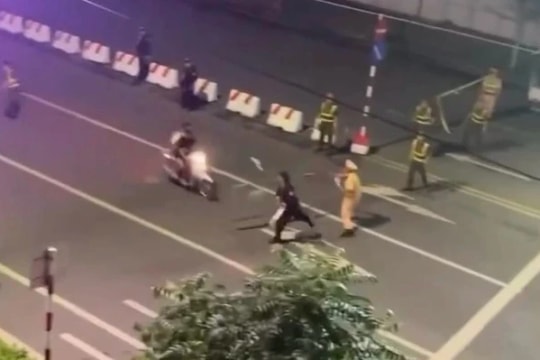

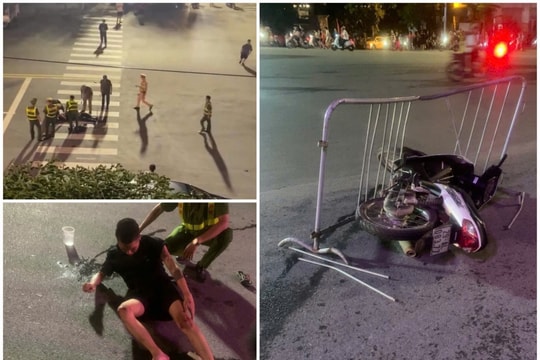
.jpg)
